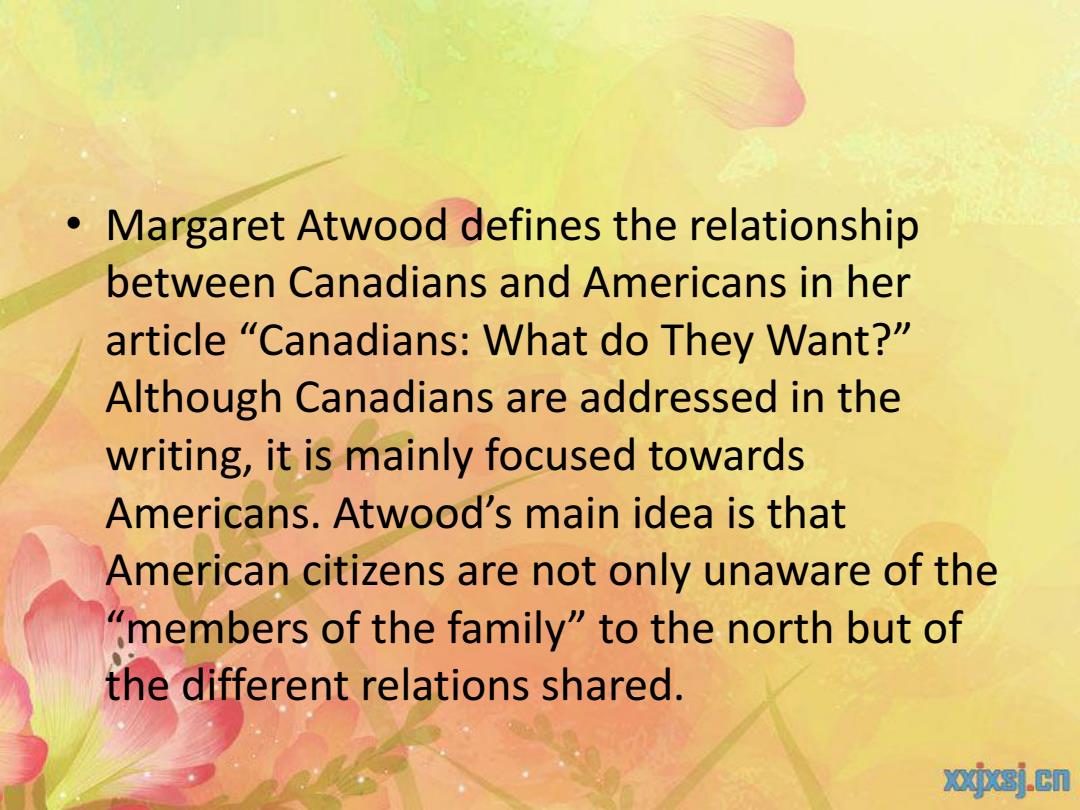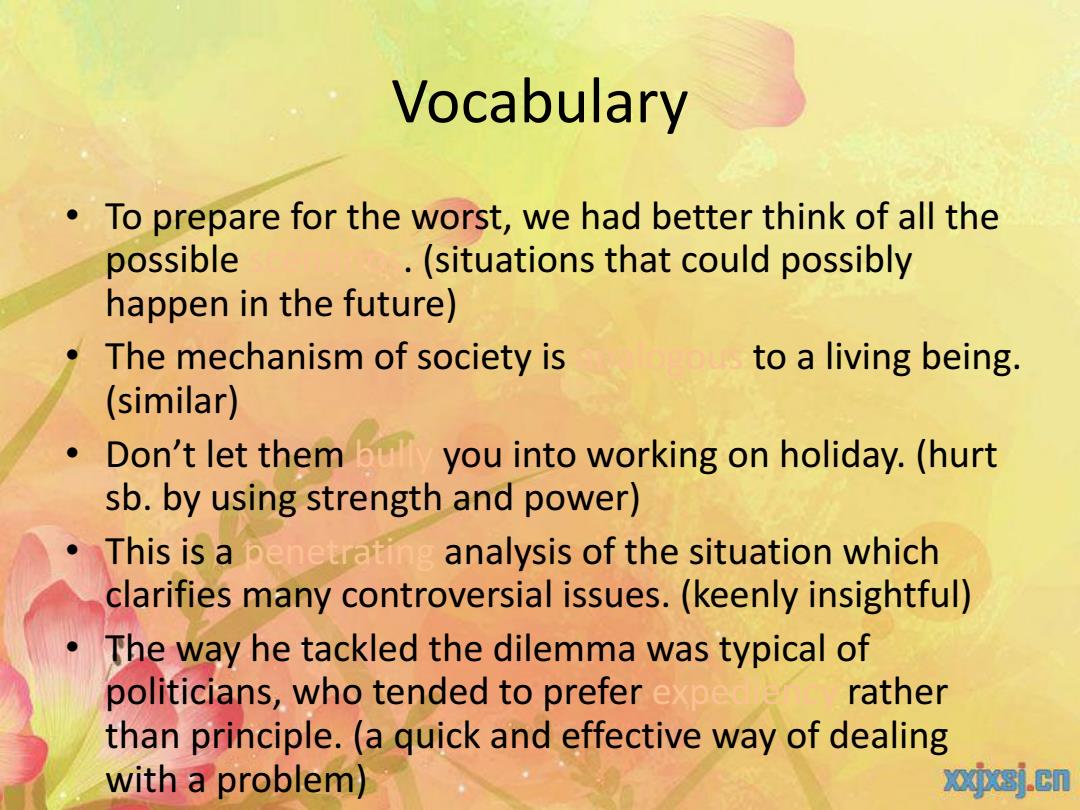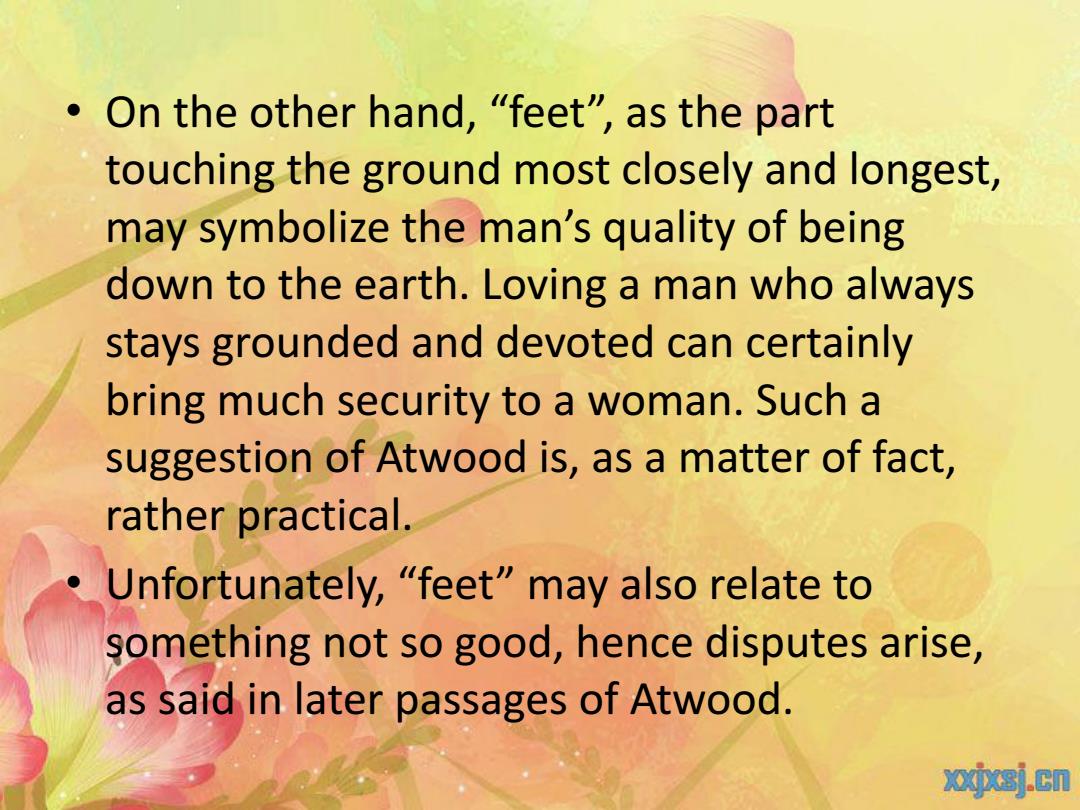
Margaret Atwood defines the relationship between Canadians and Americans in her article "Canadians:What do They Want?" Although Canadians are addressed in the writing,it is mainly focused towards Americans.Atwood's main idea is that American citizens are not only unaware of the "members of the family"to the north but of the different relations shared. xxxsj.cn
• Margaret Atwood defines the relationship between Canadians and Americans in her article “Canadians: What do They Want?” Although Canadians are addressed in the writing, it is mainly focused towards Americans. Atwood’s main idea is that American citizens are not only unaware of the “members of the family” to the north but of the different relations shared

It tells of Americans attitude toward the Canadians as a lesser person and their need to be liked by others. The Canadians are looked at as inferior because after WW Il,American business owners went into Canada and took over most of their businesses.Some Canadians hate Americans for this because they have taken their own identity away from Canada. xxxsj.cn
• It tells of Americans attitude toward the Canadians as a lesser person and their need to be liked by others. • The Canadians are looked at as inferior because after WW II, American business owners went into Canada and took over most of their businesses. Some Canadians hate Americans for this because they have taken their own identity away from Canada

Vocabulary To prepare for the worst,we had better think of all the possible (situations that could possibly happen in the future) The mechanism of society is to a living being (similar) Don't let them you into working on holiday.(hurt sb.by using strength and power) This is a eneratine analysis of the situation which clarifies many controversial issues.(keenly insightful) The way he tackled the dilemma was typical of politicians,who tended to prefer e rather than principle.(a quick and effective way of dealing with a problem) xxxsj.cn
Vocabulary • To prepare for the worst, we had better think of all the possible scenarios. (situations that could possibly happen in the future) • The mechanism of society is analogous to a living being. (similar) • Don’t let them bully you into working on holiday. (hurt sb. by using strength and power) • This is a penetrating analysis of the situation which clarifies many controversial issues. (keenly insightful) • The way he tackled the dilemma was typical of politicians, who tended to prefer expediency rather than principle. (a quick and effective way of dealing with a problem)

Para.1 Why does the author suggest we start liking men from the feet?What does "feet"possibly represent? "Feet"are of the lowest part of one's body. Atwood by mentioning "feet"first is suggesting that woman can start loving one man from the most unimportant part of him, thus gradually accumulating her affection toward the man. xxxsj.cn
Para.1 • Why does the author suggest we start liking men from the feet? What does “feet” possibly represent? • “Feet” are of the lowest part of one’s body. Atwood by mentioning “feet” first is suggesting that woman can start loving one man from the most unimportant part of him, thus gradually accumulating her affection toward the man

On the other hand,"feet",as the part touching the ground most closely and longest, may symbolize the man's quality of being down to the earth.Loving a man who always stays grounded and devoted can certainly bring much security to a woman.Such a suggestion of Atwood is,as a matter of fact, rather practical. Unfortunately,"feet"may also relate to something not so good,hence disputes arise, as said in later passages of Atwood. xxxsj.cn
• On the other hand, “feet” , as the part touching the ground most closely and longest, may symbolize the man’s quality of being down to the earth. Loving a man who always stays grounded and devoted can certainly bring much security to a woman. Such a suggestion of Atwood is, as a matter of fact, rather practical. • Unfortunately, “feet” may also relate to something not so good, hence disputes arise, as said in later passages of Atwood